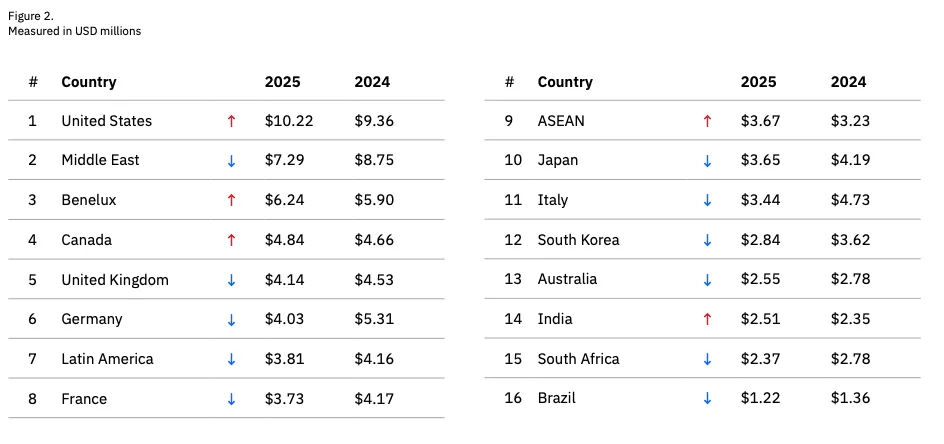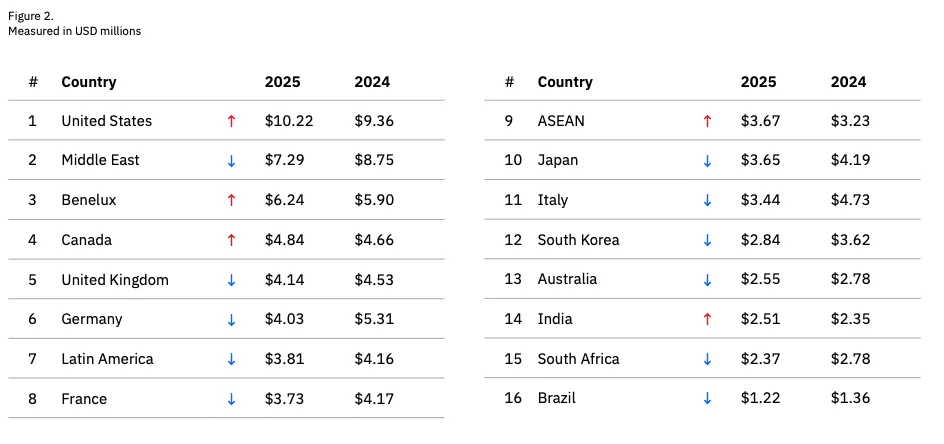
全球数据泄露平均成本下降9%至440万美元,美国增至1000万以上;检测时间缩短,医疗行业仍最高;恶意内部和供应链攻击严重,执法介入减少但有效. 2025-7-30 16:46:3 Author: therecord.media(查看原文) 阅读量:6 收藏
For the first time in five years, the average costs associated with a data breach globally has fallen, dropping to $4.4 million, according to data from IBM. But the numbers were not the same in every country and — unfortunately for Americans — the costs of a breach in the U.S. grew precipitously to more than $10 million. The cost increases in the U.S. were driven by steeper regulatory penalties and the rising cost of detection systems. The global average cost of a data breach fell from $4.88 million in 2024, a 9% decrease that now matches numbers seen in 2023. Globally, organizations are becoming faster at identifying breaches and containing them using automated tools. IBM said organizations around the world are conducting shorter breach investigations — which push down the cost of detection that include assessments, audits, crisis management and more. This is IBM’s 20th year of releasing data breach research and studied breaches at about 600 organizations between March 2024 and February 2025. Researchers also interviewed thousands of business leaders about their response to a breach. The breaches ranged from about 3,000 stolen files to more than 113,000 — covering organizations across 16 different countries and regions. IBM noted that the global average would have been lower if not for the numbers seen in the U.S. — which was 9% higher than last year. Researchers found that many countries outside of the U.S. saw a significant decrease in average cost. Italy, Germany and South Korea all saw the cost of an average breach fall by at least 21%. Image: IBM The healthcare industry saw the highest cost for breaches at $7.42 million. This is the 14th consecutive year that healthcare led all industries in highest average breach cost — even with a decrease from the $9.77 million average seen last year. Healthcare organizations on average took the longest to identify and contain breach incidents, needing 279 days to address attacks. That figure is five weeks longer than the global average. The report included several other interesting notes: 
Get more insights with the
Recorded Future
Intelligence Cloud.
如有侵权请联系:admin#unsafe.sh